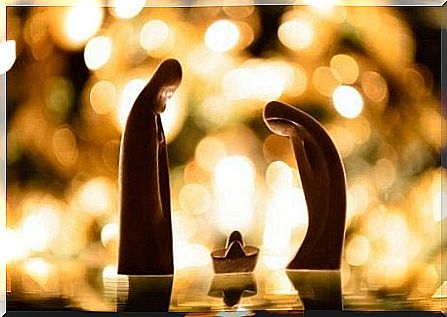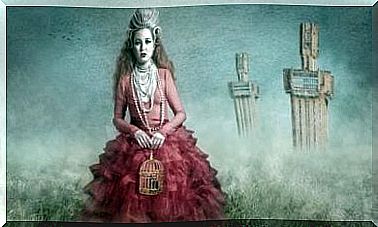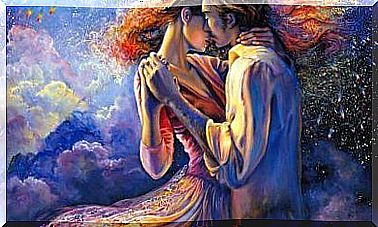The Timeless Story Of Christmas

The story of Christmas is linked to the general feelings we have during the winter in the northern hemisphere, where this holiday is rooted. Winter makes everything white and snow-covered. Long ago, this climate made people sit together to warm themselves by a fire.
This winter feeling that things are dead or asleep and waiting to be reborn, is what helped Christmas take root in the Western world. The story of Christmas is the story of how many different traditions mingled in a single holiday that is now celebrated in many different places.
This holiday basically celebrates the birth of Jesus, a central figure in Christianity. But there is actually no historical document that shows that December 25 was the day he was born. In fact, if you read it aloud, you will see that Christmas actually has a pagan origin.
The story of Christmas
It all began in the Roman Empire (which would later become the most important Christian power in the world). The Romans had a holiday in which they celebrated the winter solstice from December 17 to 23. During the holidays, they worshiped the god Saturn, which is why they called it “Saturnalia”.
The Romans gave gifts and food to the poor during this holiday. It was also common for them to eat large meals and drink a lot. To put it another way: they went bananas, just like they did many other times during the year.
But they were not the only ones celebrating around this time of year. The ancient Egyptians celebrated the birth of the god Osiris on December 25th. Nor is it the only coincidence between Egyptian mythology and Christianity. They also believed that Horus was born of the virgin goddess Isis in late December.

Other cultures involved in the origins of Christmas
The Greeks also counted December 25 as a special day. They believed that Dionysus (the god of wine) and Adonis () were born that day. Some also argue that the Hindu god Krishna was born on December 25, although this is not a universal Hindu belief.
The Chinese do not work on December 24 and 25. These days, they commemorate the winter solstice. The Aztecs believed their god Quetzalcoatl was born in the last week of December. The ancient Persians also believed their god Mithra was born on December 25 by the virgin Anahita.
even came all the way to the Roman Empire after they invaded Persia. It became so important in Roman society that it actually competed with Christianity for a long time. Their traditions mingled with the Roman tradition of Saturnalia.
How Christmas became a holiday
When Christianity really took hold, theologians began to discuss when Jesus was born. The Gospels had not been very specific. Some said that it was during the reign of King Herod, while others said that it was after Kvirinius came to power in 6 AD.

This lack of security led some people to celebrate Christmas on May 20 and others on April 20. This led to great confusion, and they asked for advice to solve the problem, as they had done many times before. still had many followers, so the priests decided to make December 25th Jesus’ birthday.
Initially, they absorbed the Persian beliefs that had entered Roman society. This happened in the year 354 AD. under Pope Liberius.
The story of Christmas is timeless because it has its origins in so many different cultures and eras. It mixed traditional celebrations of peace, friendship and solidarity into a single holiday. Basically, there is only something about the last week of the year that makes us want to improve and celebrate the beginning of a new life.









